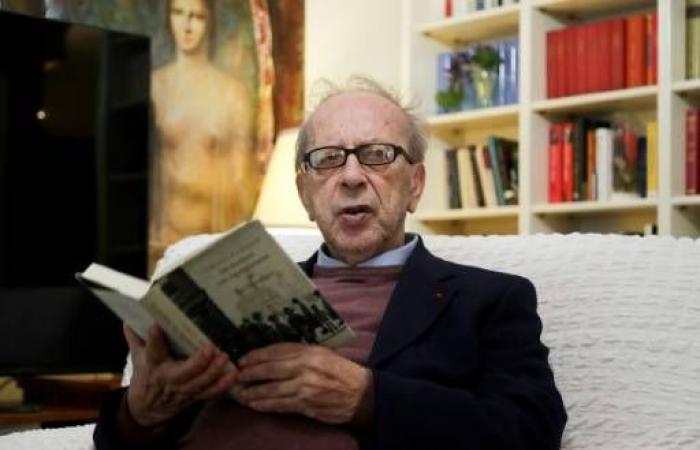With the death of Ismail Kadare, the Albanian literary giant who had made his pen a weapon against dictatorships, a “monumental voice” has died. But his powerful and free work survives, as Albanian politicians, publishers and citizens hail with one voice.
“I have just learned the sad news of the departure of the greatest monument of Albanian culture,” Albanian Prime Minister Edi Rama said on Facebook. “He is now on the pedestal of eternity, and no words come to me.”
Then to resume the message published for the birthday of the one who died without having received the Nobel Prize for Literature, for which he had nevertheless so often been considered: “I thank him for the extraordinary pleasure (that he offered us) of traveling in a world of events, characters, emotions, which he brought to life with the ease of a magician. And for the bitterness that he provoked in the mediocre and the jealous with his resounding success.”
Published in dozens of languages, Ismail Kadare achieved success in the 1970s, putting Albania on the world literary map.
“He is the author who resized literature and the entire Albanian society, thanks to his works published in the midst of darkness, and also after. But even though he has left this world, his mission does not end,” explains Persida Asllani, head of the literature department at the University of Tirana.
Among the reactions to his death, Kosovo President Vjosa Osmani mourned “the loss of a monumental voice, a treasure that only exists once in a generation,” adding that Kadare, through his work, “had fearlessly defended the Albanian language and culture.”
First winner of the International Booker Prize
“Ismail Kadaré has been considered for several years as one of the greatest writers of our time. It is an honor to have had the privilege of publishing his work,” wrote the French publishing house Fayard on X.
This work, rich in some fifty works – novels, essays, short stories, poems, plays – translated into 40 languages, was partly written under the dictatorship of Enver Hoxha, who, until his death in 1985, mercilessly ruled a hermetically sealed country.
Kadaré’s words had managed to cross borders.
“With his brilliant style, he brought history to life, he was able to tell the truth about what happened during communism – but not only. And not only in Albania, because he was also a connoisseur of the region and the Balkans,” says Katerina Hysenllari, a 24-year-old student, on the streets of the Albanian capital, Tirana.
“What is written on the Pantheon in Paris: To great men, the grateful homeland, is also valid for Kadaré, adds Shezai Rrokaj, professor of language at the University of Tirana. This great genius taught us to know our literature and to appreciate the art of writing.”
A figure in this small country of 2.5 million inhabitants known for its crystal clear waters, its ancient sites and the sulphurous reputation of some of its cartels, Ismaïl Kadaré became in 2005 the first winner of the International Booker Prize for his entire body of work, the organisation recalled on X.
His death “is a loss for Albanian literature and for world literature. But writers are subject to other laws: a writer leaves us only physically, his work remains for centuries,” assures Zylyftar Bregu, 41 years old and passionate about literature.
French politician Renaud Muselier, president of the Provence-Alpes-Côte-d’Azur (PACA) region, linked to Albania through his mother, praised “a passionate man of letters”.
“He leaves us the legacy of his powerful works,” he wrote on X. “His pen will have been tirelessly fueled by his commitment to freedom: his words resonate this morning.”
Briseida MEMA/AFP
With the death of Ismail Kadare, the Albanian literary giant who had made his pen a weapon against dictatorships, a “monumental voice” has died. But his powerful and free work survives, Albanian politicians, publishers and citizens greet with one voice. “I have just learned the sad news of the departure of the greatest monument of Albanian culture, a…
- -





